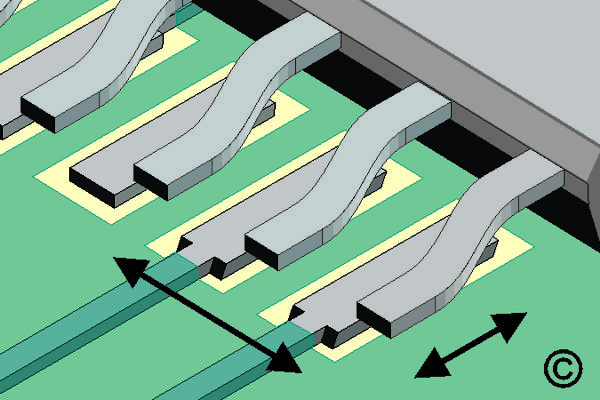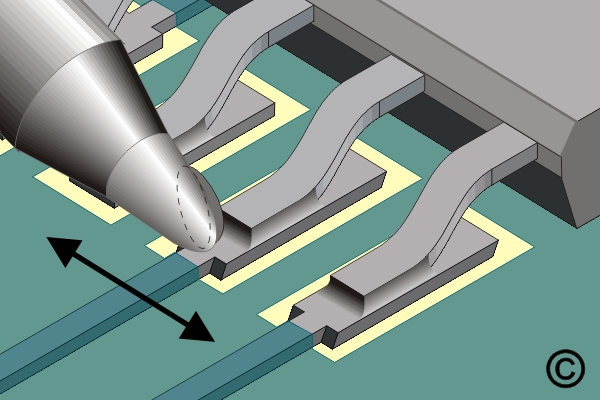|
Outline
This procedure covers the general guidelines for soldering surface mount Gull Wing components. There is basically only one type of Gull Wing component. Whether leads are on two sides or four sides, or whether the component is large or small, the soldering principles are the same.
|
|||||||||||||||||||||||||||||
|
Procedure
Procedure
|
|||||||||||||||||||||||||||||
Images and Figures
Soldering Surface Mount Gull Wing Components, Continuous Flow Method

Figure 1. Place component and check alignment.

Figure 2. Apply solder to the continuous flow solder tip to create a convex bead of molten solder

Figure 3. Slowly move the tip over the row of leads to form proper solder fillets at each joint.
|
|||||||||||||||||||||||||||||
7.5.2 Soldering Surface Mount Gull Wing Components, Continuous Flow Method
Procedure covers soldering of surface mount gull wing components on circuit board assemblies using a continuous flow soldering method.
Minimum Skill Level: Intermediate
Conformance Level: High
REQUEST FOR QUOTE GUIDES INDEX

Soldering Surface Mount Gull Wing Components, Continuous Flow Method

Place component and check alignment.

Apply solder to the continuous flow solder tip to create a convex bead of molten solder

Slowly move the tip over the row of leads to form proper solder fillets at each joint.

We're here to help with all your challenging circuit board and electronic component rework and repair needs.
LEARN MORE
SLIDESHOW STARTING
❮
❯





